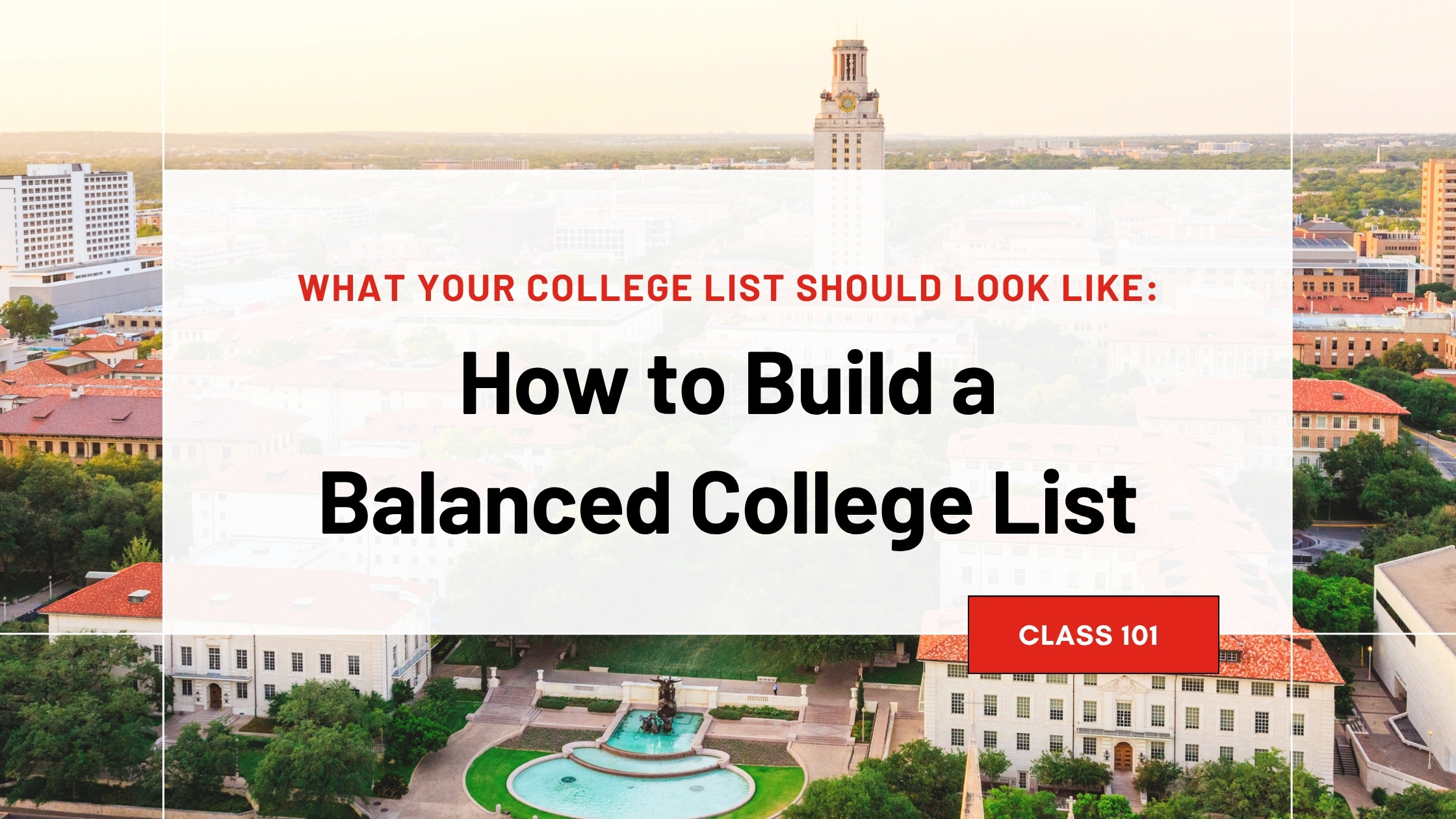December 12, 2022

Everyone is familiar with the resume. It’s a short overview of a person’s job history, accomplishments, and skills meant to help them apply for a job opening, scholarship, or program.
What many don’t realize is that the resume is just as important in applying to college as it is in applying for a full-time job. While it’s not explicitly required on the standard Common App, the resume serves the same function as ACT and SAT scores, personal essays, and letters of recommendation: It helps students demonstrate why they’re valuable applicants.
In this blog, we’ll summarize three of the ways that a resume can accomplish this goal for you. In the process, we’ll give you some brief tips on how you can use the resume to put your best foot forward in the application process and give tips on what you might want to include in it.
Did you complete a summer program or leadership conference? Have you won your high school’s local robotics competition or Model UN tournament? Were you selected to manage the ice cream machine at the restaurant where you work part-time?
All of these are achievements that can help tell a college admissions officer what you excel at. Great or small, your resume can be used to demonstrate the different skills you possess and the ways that you’ve applied them—in a way that might be missed in your essay or letters of recommendation. It can be another tool for you to tell your story.
It can also tell a college admissions officer what drives you, and which interests you’ve pursued. Through your college resume, you can provide a snapshot of your life that might demonstrate why you are a great candidate for a particular academic program.
Depending on where you’re applying and what you are interested in, you might want to craft your resume to tell a particular story over another. If you are applying to a fine arts program, for example, you might want to put greater emphasis (and detail) into an art show you won while shortening your descriptions of the summer you interned at a congressional office.
Any experience can be good to put on a resume but some experiences might do an easier job of telling others the path you envision taking in college and beyond.
Finally, a fleshed-out resume is a great way of demonstrating you’ll seize the opportunities your college of choice presents to you.
Few colleges want students who will spend all day hiding in their dorm rooms. They want students who are motivated and engaged. They want students who will go out and contribute to their college campus by joining clubs, pursuing internships, and leading their academic department. When they graduate, they want students who will take their degree and find some way to apply it.
You can show your college that you will be active and engaged by showing the diverse activities you are involved in. If you volunteer at your place of worship or provide service to those in need, that can demonstrate an awareness of others. It shows that you carpe diem, seize the day.
***
Of course, resumes can serve other functions as well. They can demonstrate your professional writing abilities, your seriousness as an applicant, and your desire to go beyond the bare minimum. The three items listed in this blog are only the most common reasons we recommend for resumes.
Students should talk with their Class 101 college advisor about how to make a resume work for them and whether they might need other compilations of their skills—such as a portfolio for those pursuing art. Find your closest Class 101 location today and make your resume stand out from the crowd.
Article updated July, 2024

June 24, 2025
It’s around this time of year that many students and families start looking for the right college. This process tends to start with a college list, a collection of schools to apply to that match a student’s academic profile, interests, and the kind of experience they want to have. Having a well-rounded, strategic list of […]
Read More >
June 20, 2025
Every year, Class 101 awards scholarships to four high school students through the 101 Scholars program. Given to students of outstanding merit, it asks students to explain how they’ve used their skills and talents to change their community and the lessons they’ve learned from these experiences. This year, Class 101 is pleased to announce the […]
Read More >
May 22, 2025
One of the central parts of the college application process is the application essays. While grades and test scores give some hint at a student’s capabilities, the essay provides an opportunity for a student to present themselves on their terms. It can be used to show not only who they are but how they think […]
Read More >